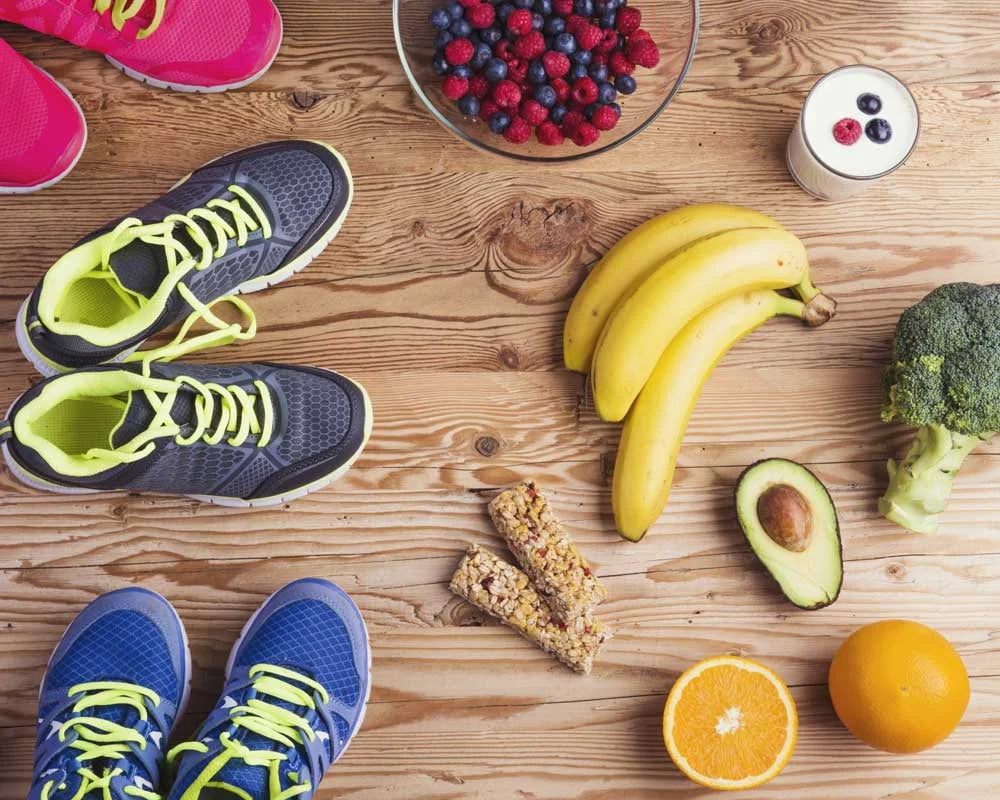
Running: Daily Meal Plan
Share
Running is one of the most popular and effective physical activities for improving cardiovascular health, weight management and increasing physical endurance. However, to maximize the benefits of running, it is crucial to combine training with proper nutrition. Here, we present an ideal daily meal plan for runners, aimed at optimizing performance and recovery, with the ideal amounts of recommended daily nutrients.
Importance of Nutrition in Running
Nutrition plays a vital role in a runner’s performance. A balanced diet provides energy, aids muscle recovery, prevents injuries and maintains a healthy immune system. Runners need a proper balance of carbohydrates, proteins, fats, vitamins and minerals.
Ideal Amounts of Daily Nutrients
Carbohydrates
Carbohydrates are the main source of energy for runners. It is recommended to consume 5-7 grams of carbohydrates per kilogram of body weight per day for moderate to intense training.
Proteins
Protein is essential for muscle recovery and growth. Runners should consume between 1.2-1.7 grams of protein per kilogram of body weight per day.
Fats
Fats are important for long-lasting energy production. A recommended intake of 20-35% of daily calories from fats is to focus on healthy fats such as those found in nuts, seeds, avocados and olive oil.
Vitamins and Minerals
Vitamins and minerals are crucial for numerous bodily functions, including recovery and immunity. Adequate intake can be achieved by eating a diet rich in fruits, vegetables, legumes, and whole grains.
Daily Meal Plan
Breakfast
Breakfast should be a meal rich in complex carbohydrates and proteins to provide energy and satiety.
- Option 1: Oatmeal porridge with fruit and a spoonful of honey, accompanied by a glass of milk or a plant-based drink.
- Option 2: Wholemeal toast with avocado and scrambled egg, accompanied by a natural orange juice.
- Option 3: Banana, spinach, protein powder and almond milk smoothie.
Morning Snack
A light snack to keep your energy levels up and stave off hunger until lunch.
- Option 1: An apple with a tablespoon of peanut butter.
- Option 2: A handful of almonds and a tangerine.
- Option 3: Plain yogurt with a teaspoon of honey and chia seeds.
Lunch
Lunch should be balanced, containing carbohydrates, proteins and a good amount of vegetables.
- Option 1: Grilled chicken breast with brown rice and green leaf salad, tomato and carrot.
- Option 2: Baked salmon with sweet potatoes and broccoli.
- Option 3: Quinoa with roasted vegetables and grilled tofu.
Afternoon Snack
Another snack to keep your energy levels up before your afternoon or evening workout.
- Option 1: Cereal bar with Greek yogurt.
- Option 2: Wholemeal bread with fresh cheese and cucumber slices.
- Option 3: One banana with one tablespoon of almond paste.
Pre-Workout
A light meal, rich in carbohydrates and easy to digest to provide immediate energy.
- Option 1: A banana or an apple.
- Option 2: Wholemeal bread with sugar-free jam.
- Option 3: A slice of whole wheat banana cake.
Post-Workout
Crucial meal for muscle recovery, rich in proteins and carbohydrates.
- Option 1: Fruit smoothie with protein powder.
- Option 2: Turkey breast and cheese sandwich on whole wheat bread.
- Option 3: Egg white omelette with spinach and tomato, accompanied by a slice of wholemeal bread.
To have lunch
Dinner should be light but nutritious, focusing on lean proteins and vegetables.
- Option 1: Vegetable soup with shredded chicken breast.
- Option 2: Quinoa salad with chickpeas, tomatoes, cucumber and olive oil.
- Option 3: Grilled tilapia fillet with pumpkin puree and green salad.
Supper
A small meal to avoid nighttime hunger and help with muscle recovery.
- Option 1: Natural yogurt with red fruits.
- Option 2: A glass of milk or plant-based drink with a tablespoon of oats.
- Option 3: A handful of walnuts or almonds.
Final Tips
- Hydration: Drink plenty of water throughout the day, especially before, during and after training.
- Variety: Include a wide variety of foods to ensure you get all the essential nutrients.
- Customization: Adjust portions and food choices to suit your individual needs and preferences.
By following this daily meal plan, runners can ensure they are providing their bodies with the fuel they need to achieve their training goals and stay healthy. Always remember to consult a nutritionist to customize your plan to your specific needs.
Service Suggestion
For those who want more structured and specialized support in maintaining physical fitness, especially with a focus on supplementation, the Metabolic Training Program is an excellent option. This program is designed to maximize calorie burning and increase metabolism through intense and effective exercise. Adaptable to different fitness levels, it offers a complete plan that combines strength, cardio and flexibility exercises, promoting continuous improvements in physical performance and overall health.
For more tips on nutrition and training, keep following our blog at Home Workouts . Happy running!


